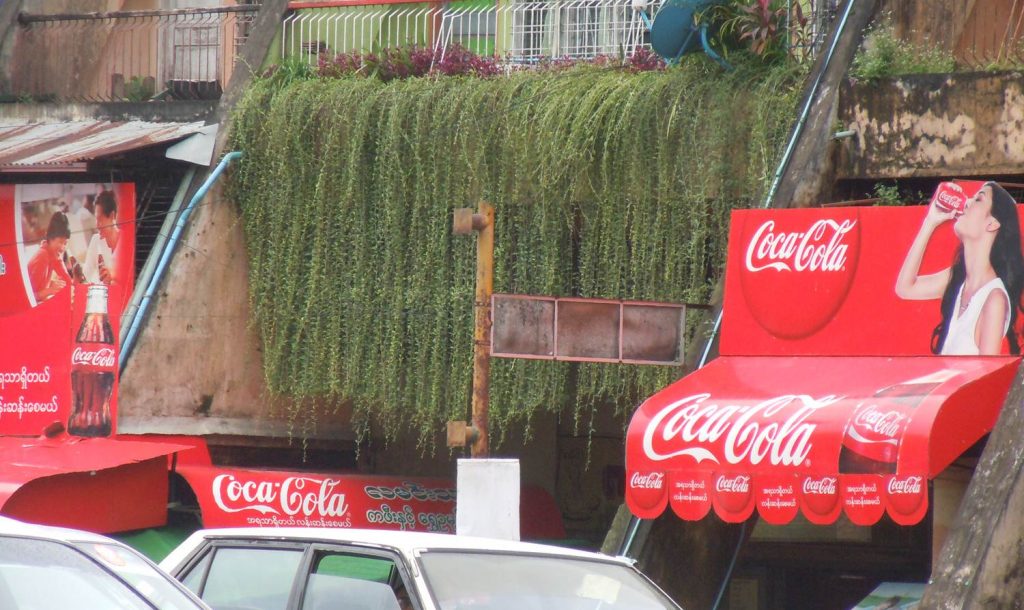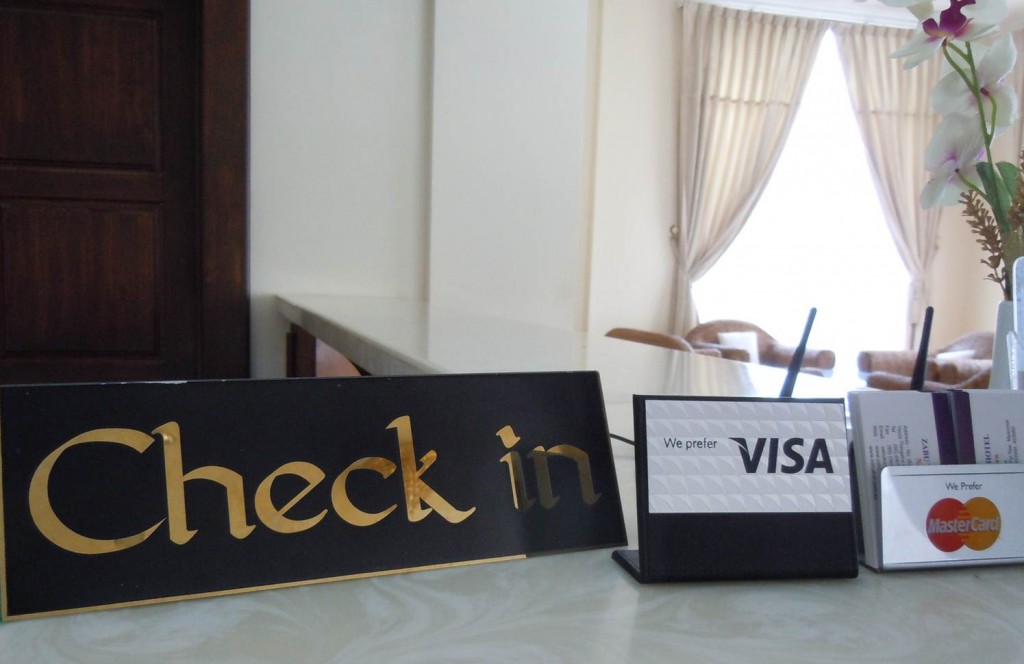Almost three years after the new regime known as ‘the democratically elected government’ took power in Naypyidaw, there have been many foreign investors looking into the once-isolated country for their foreign direct investment opportunities. The IMF recently even predicted that the new emerging country would be an Asian frontier or an Asian Tiger if the reform process keeps going on the right track. However, many investors have hesitated to do business in the country. Actually, there are a lot of investment opportunities inside the country such as telecommunications, agriculture, various natural resources, mineral, and fisheries etc. Naypyidaw has earnestly welcomed those investments. For instance, last month Myanmar’s foreign minister said at the Asia Society in New York, referring to American investors, “I wish to take this opportunity to invite more U.S. business firms and investors to get up and join the gold rush to Myanmar.” However, Naypyidaw expresses at the same time its frustration when holding receptions for hundreds of potential foreign investors: “investors come talk with us, and then turn away.” So a question is: why have those investors turned away? Why are they still waiting?
Myanmar’s democracy icon Aung San Suu Kyi usually claims that this hesitation is mostly due to the fact that the rule of law is so weak in Myanmar. Some scholars and academics as well as economists claim that many ‘economic’ conditions are unfavourable. They point to poor economic infrastructure such as roads, erratic electricity supply, and the hyper-inflated real estate market, aswell as a lack of qualified human resources, to say nothing of the political risks such as recent communal and religious violence, and less predictable political trends that includes the military’s ambivalent role in the future.
All of these issues are relevant. Weak rule of law is probably not a major factor in determining investment flows, and the more causal relationship may be in the reverse direction. For instance, it is true for China that the presence of at least certain foreign investors may contribute to the development of the rule of law through their demands for legal reform. Myanmar’s poor economic infrastructure must be upgraded to attract more investment flows. Naypyidaw must show its capabilities to do so via investing massive amounts of money in upgrading infrastructure. Thewre is no doubt that the government can do this given that it has built a multi-billion new capital within a few years.
Apparently, the World Bank, ADB, and other financial institutions are out there to help move the new Myanmar forward. Current communal and religious violence could be quashed if Naypyidaw really wants to take harsh actions against those who committed the crimes. Then, those unfortunate killings would stop within a few days. Currently, a series of small bomb blasts must be stopped if Naypyidaw really is committed to doing so, figuring out who are masterminding and taking harsh punishments against those who are committing these inhumane crimes. For the military side, the commander-in-chief recently assured the Thai Prime Minister that the military has backed the democratic transition and that investors should not be hesitant to do business in Myanmar.
Then, can foreign investors do business in the new Myanmar? Most challenges, as mentioned above, can be wiped out easily if Naypyidaw actually wants to do so. What the Naypyidaw regime is always overlooking when it attracts to foreign investors, however, is its own mentality. It is important to point out the new regime is composed of the same persons that were integral to the previous military regime. History often reminds investors how bitterly they were treated by the military regime. For instance, Mandalay Beer, a joint venture between Singapore-based company, Yaung Chi Oo Trading and Burma’s Ministry of Industry (1), was confiscated in 1997 by the military. The perfect example, perhaps, right now is The Myanmar Times newspaper. Media speculated that the then Minister of Information Kyaw Hsan created shareholder troubles for the paper in which some of the shares still secretly belong to him. Due to such bad practices, the Myanmar Times is currently facing a complex shareholder issue between the local partner and the foreign investor. These are all bad business practices most foreign investors are most scared of.
This is a difficult situation for the new regime when it says “we’re not doing this bad practice again” because the new regime is built by the old regime. Foreign investors understand that Burma’s democratization is a change of regime, not a regime change.
In order to attract foreign investments, now is the time for Naypyidaw to show the reverse order, “we’re a regime change, not a change of regime,” at least in terms of its mentality and capabilities. This could be a big challenge ahead. In this respect, Naypyidaw needs to grant more authority to technocrats in order to make effective decisions for foreign investors and to build trust among them. That could prompt more sharp divisions between President Thein Sein and the military-backed ruling party, Union Solidarity and Development (USDP), which he formerly chaired. The chair of the party was then handed over the Speaker Shwe Mann over the allegations of a falling out between the party and Thein Sein. The USDP wanted to control the government as the ruling party, taking most of the important positions. It is clear that the USDP is attempting to expand its control of governmental decisions. For instance, last July, Shwe Mann called for the direct involvement of the parliament in the on-going peace process. The USDP seemed to be considering that the Thein Sein government does not necessarily represent the party. The 2015 elections is an important step for the USDP to keep holding power. It thus needs to show ‘success stories” to the public as part of its campaign agenda.
Having no level playing field is the other obstacle for foreign investments to flow into Myanmar. The regime’s business cronies have expanded their business opportunities not just domestically but also internationally. For instance, the cronies have been allowed to establish big banking and insurance companies to provide services for potential international investors, while the law technically blocks foreign investments from accessing those markets. Many believe that the real estate market is hyper-inflated because the cronies have invested in those markets for their money laundering purpose. This claim must be reasonably true given that majority of the people do not have sufficient capital to trade off in those markets and that only those who are the cronies and the elites could significantly shape the markets. The other obvious example is media industry. Upon the relaxation of the notorious censor, the business cronies have expanded their investments in media industry. While most media business cannot make a profit due to a limited access to a wider audience for various reasons, many cronies have hugely invested in that, as many believe, for money laundering purposes. Some of their investments are, of course, aimed at influencing public and political decisions.
Foreign investors know all of this very well. Perhaps they know better than the new regime does given their global business experiences. This bad practice business behavior is serving as a signal for a “wait and see” approach from them. However, it does not necessarily mean that foreign investments are not coming in. They definitely will. China, for instance, ignoring everything, just does its own business in Myanmar. Business, in both practice and theory, does not care for those bad practices but what it cares about is how those bad practices hurt their ‘sustainable’ profits. For instance, an internationally renowned firm working with a crony-related firm in Myanmar cannot bear any boycotts against its products globally.
Naypyidaw will need to figure out ways to guarantee those detrimental effects will not be incurred by its foreign clients. Currently, there is no way out for Naypyidaw since it is struggling to refurnish its own reputation between the two phrases–a change of regime and a regime change. It is clear, however, that foreign investors are eager to enter the country to make money in ‘untouched markets.’ Those markets are Myanmar’s most important comparative advantages against its neighboring countries. However, the two main risks–the mentality of the new regime and widespread cronyism–are counterbalancing those advantages. The only way to alleviate those risks is for the USDP, the military and Thein Sein to work closely together. Yet, an apparently deeper division between the USDP and Thein Sein hinders the way, hurting both those Burmese who want jobs quickly inside the country and those investors who want to seize new opportunities.
Aung Tun worked as a journalist in Myanmar for several years and is currently based in Boston, USA.
 Facebook
Facebook  Twitter
Twitter  Soundcloud
Soundcloud  Youtube
Youtube  Rss
Rss 
